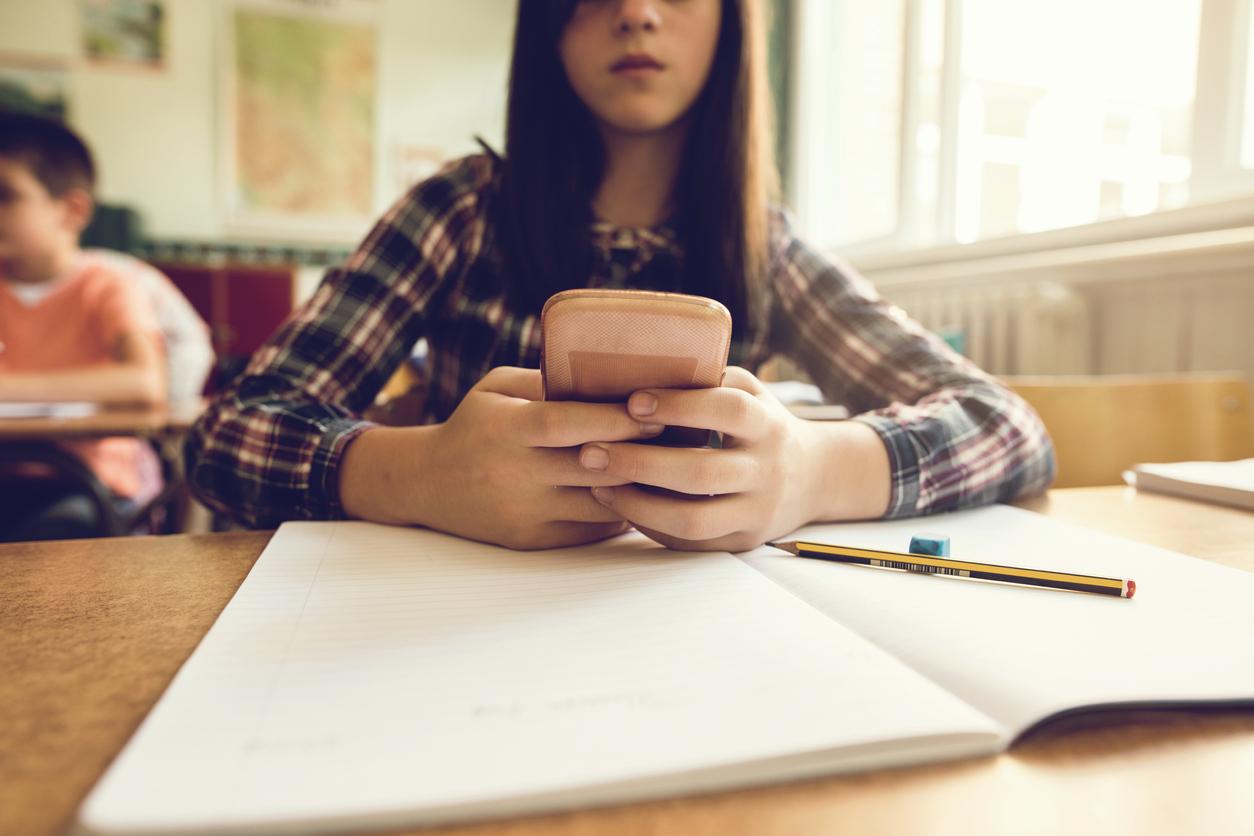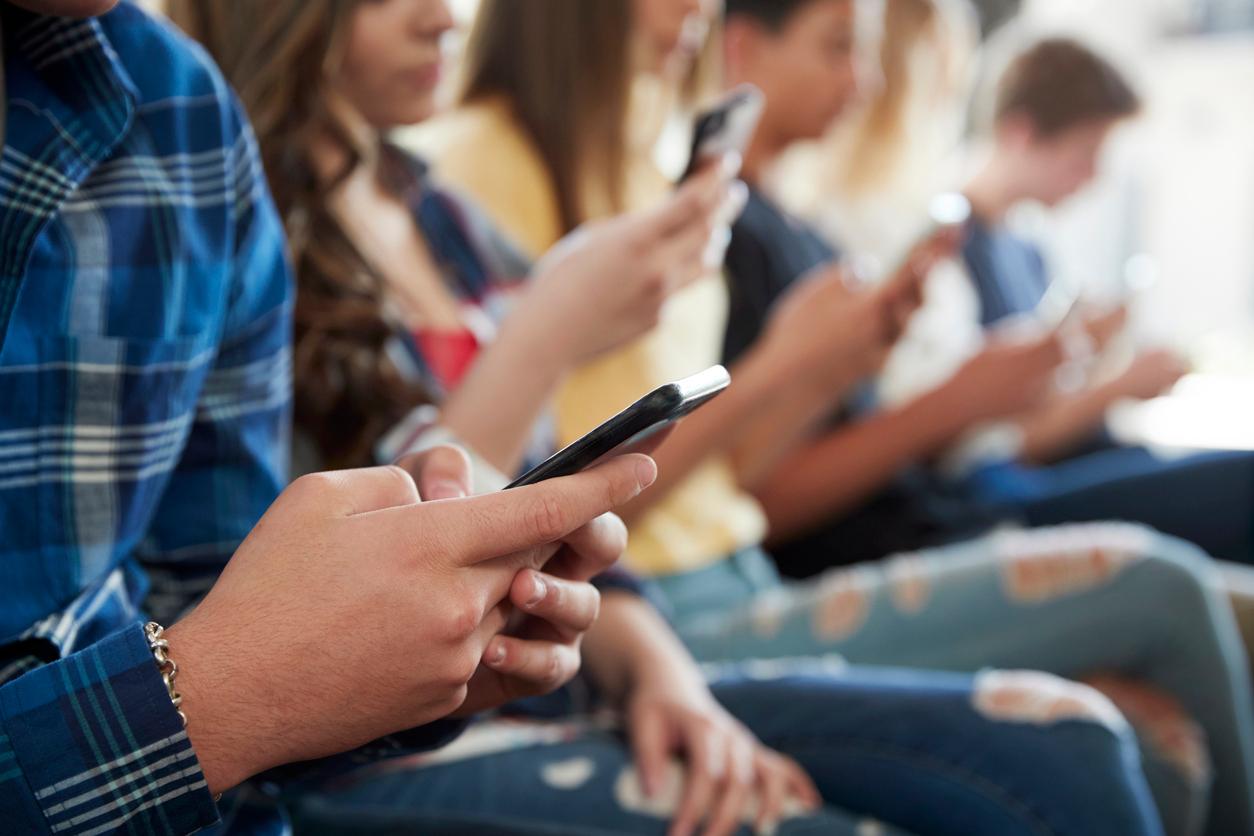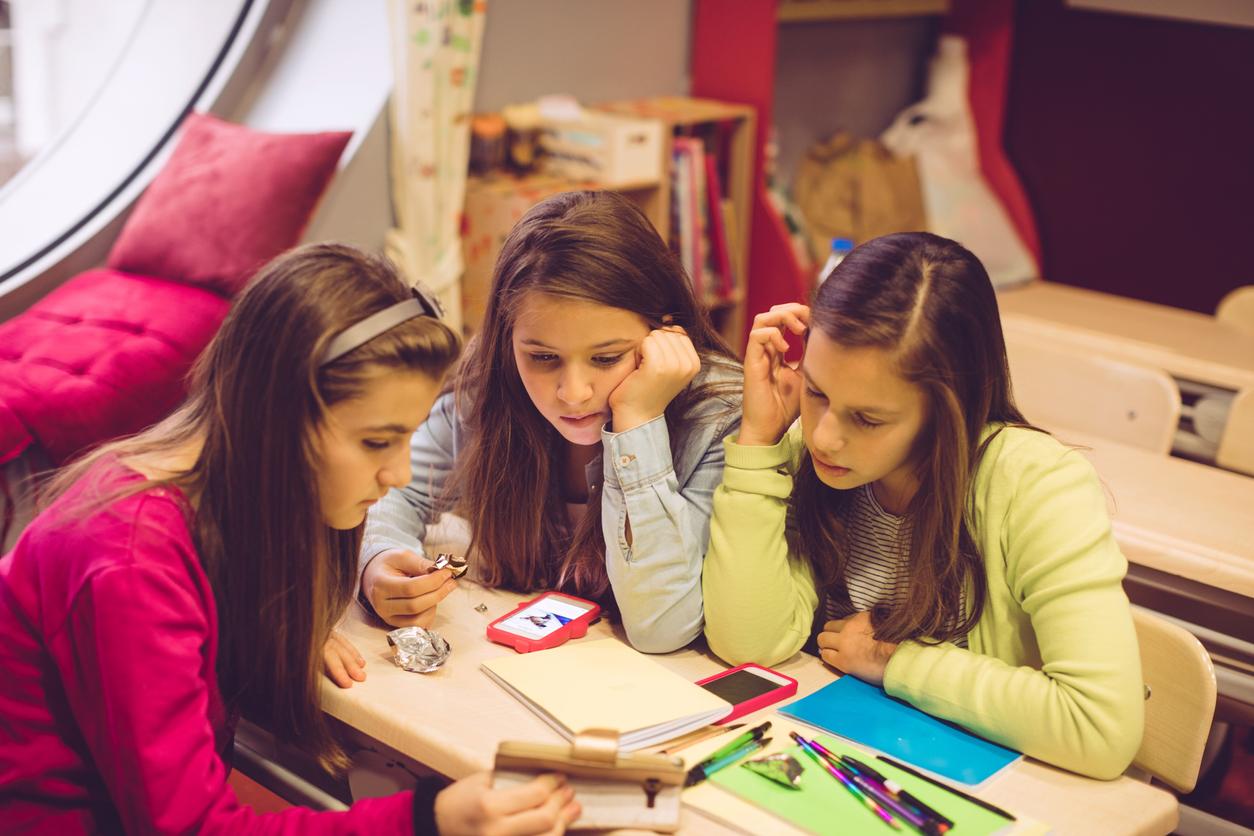
France banned children under 15 from using their phones in school and the U.S. is following suit
By Mark PygasOct. 3 2019, Updated 9:39 a.m. ET
A lot has changed in the last few decades. Kids are getting phones at a younger and younger age, and they aren't the Nokia's many of us had as children that could only make calls and play Snake. Unsurprisingly, smart phones are becoming a huge problem for schools.
That's why France decided to ban children under 15 from using their cellphones, as well as tablets and smartwatches, at any point during the school day last year. The ban passed in July 2018 by 62 votes to one, was part of a campaign pledge by French President Emmanuel Macron.

A law passed in 2010 had already banned the use of phones during class hours, but this ruling also extends to breaks and mealtimes. Schools are free to choose themselves if they will implement the ban for students over 15, they can also make exceptions to the ban for children with disabilities.
For those students that do have to follow the new rules, phones must be turned off or placed in a locker according to the Associated Press.
Education Minister Jean-Michel Blanquer called the legislation "a law for the 21st century," and said it would improve discipline.
"Being open to technologies of the future doesn't mean we have to accept all their uses," he added.
And now, some schools in the United States have started to follow suit and bring in similar policies to those that proved successful in France.

“It was a constant distraction for kids and what it became is a constant discipline issue,” Robin Kvalo, Principal of Portage High School told WPR.
The Portage Community School District in Wisconsin banned phones from all areas of schools during class hours. Kvalo's school alone confiscated 200 phones in one school year.
"They are not distracted anymore," she said. "The phones are not their preoccupation. They know they can't have the phones in the classroom. If that had been the case years ago, we wouldn't have needed the policy."
California could also face a ban on phones in schools if lawmakers in the state get their way. Some school districts have already voluntarily implemented new rules.
“At the crux of the new policy is the fact that we want to make sure students are learning in the classroom and not preoccupied with being on their cellphones,” said Alexander Cherniss, superintendent of the Palos Verdes Peninsula Unified School Board according to the LA Times.
All children in grades K-5 in the district have to have their phones turned off and stored away during school hours. Older students and those with disabilities can obtain permission to use a smartphone for academic purposes.

And there's a good reason to believe that bans could help students to perform better.
The London School of Economics found that students in schools that banned phones earned higher test scores. Students who under-performed benefited most from the ban.
“Restricting mobile phone use can be a low-cost policy to reduce educational inequalities,” the study concluded.
The Journal of Communication found that students without mobile phones wrote down 62% more information during classes than those who were allowed to use their phones during class.
And according to the University of Chicago, simply getting students to turn off their phones isn't enough. They found that the mere presence of a phone, turned off and face down, reduces people’s cognitive capacity.
